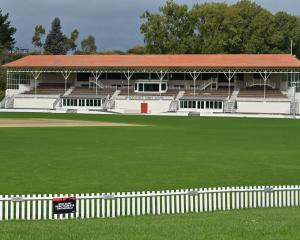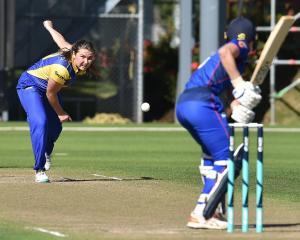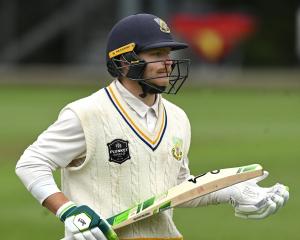
The onus goes on both parties to conjure up a sustainable spectacle when the opening game of the two-test series between New Zealand and England gets underway at 2pm.
Organisers from both entities need numbers on the board. The New Zealand Herald understands a general hit of about 10,000 ticket sales per day would justify the NZC expense of hiring Eden Park.
The illumination, hospitality, security, pitch quality and overall user-friendliness need to exceed stakeholder expectations as the venue literally comes under the spotlight.
The cricketing public are only too aware contingency plans loom with fledgling work underway on a prospective new ground at Western Springs, if the speedway lease is not renewed from 2019.
Eden Park remains this country's best candidate to cater for big sporting crowds, such as the 35,000 fans who attended the Australia-New Zealand pool match during the recent Twenty20 tri-series.
The recent debate over whether the ground's size detracted from such spectacles was defused by NZC, who issued the following statement:
"Eden Park is International Cricket Council-compliant because of a grandfather clause [as an established ground before the latest regulations]. It is the only international cricket venue in Auckland and, as such, is NZC's sole option in terms of bringing the Black Caps to the region."
It has a fortress mentality - associated mainly with rugby - but players and fans appreciate the site's sporting legacy.
Eden Park has been used as a cricket test venue twice in the last decade for matches against England in 2013 and India in 2014. Both matches, regardless of the ground's truncated dimensions, provided cracking finishes.
However, there can be no sense of entitlement.
The tendering for architectural work at Western Springs in January suggests momentum is building to shift international cricket from what has been its Auckland home since the New Zealand-England test in February 1930.
A Regional Facilities Auckland caveat reserves the right not to go ahead, or to cancel the project at any time – a standard get-out clause which might come into the reckoning when funding issues are considered.
A source told the Herald the design alone was expected to cost "a ballpark figure of $2-3 million" as part of an overall project budget of $20m to $40m.
Ratepayers would be right to question if that was a justified investment, especially with the number of future home tests expected to dwindle. That could gift Eden Park a lifeline that must be seized this week.
The ground could get hit on a separate front, given the success of the Bay Oval lights in Mt Maunganui this summer. That offers a viable day-night alternative within three hours' drive of Auckland. The estimated capacity off 11,500 also trumps the capabilities of Seddon Park, despite the Hamilton-based venue being closer to Auckland.
In addition to Seddon Park, purpose-built cricket grounds such as Wellington's Basin Reserve, Christchurch's Hagley Oval and Dunedin's University Oval have been preferred for the game's longest form.
In some quarters, that is seen as a missed economic opportunity for Auckland across eight of the previous 11 summers.
This week offers a prime chance for change.












